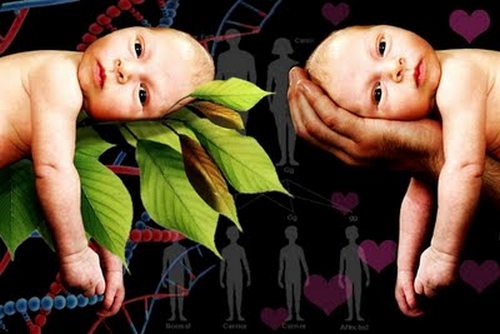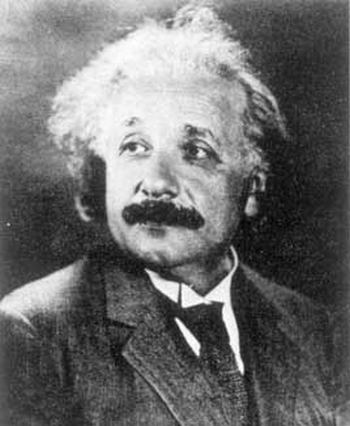Despite its relatively small size, the human brain is one of the most complex parts of our bodies, so much so that what it can do and how it does certain things are still unknown to science. What follows are only five such mysteries of the human brain, and even with these five we’re only scratching the surface.
1.
Nature vs. Nurture
One of the things we understand the least is also what is most important to us: identity. What determines how we behave? What we like? What we dislike?

The question of nature versus nurture pits genetics against environment to determine which aspects of our lives determine which aspects of us. Studies of nature versus nurture often focus on twins. Because they have the same genes it’s easier to determine how a pair of twins differ from each other growing up and could serve as a possible starting point for understanding how big of an impact genes have on our identities.
However, the results of such studies tend to be inconclusive more often than not. Though twins will usually have odd things in common such as physical habits, their lives still differ in major ways. However, twins that are raised separately have more similar personality traits than a random pairing of strangers, implying a genetic influence. IQ appears to be more dependent on who you are raised with in your own family, at least until adulthood, implying a nurture influence.
It’s obvious that both factors shape our identities, but we still don’t know to what extant or if that can vary.
2.
How Memory Functions
Ask anyone off the street where they think memories are stored and they’ll most likely tell you the brain. These people are wrong, though they shouldn’t feel bad because science has barely scratched the surface of how memory functions.

Recalling memory is a process that relies on the entire central nervous system. This explains why you can remember different sights, sounds, smells, and physical sensations realistically. Memories are then stored in part based on intensity – the more intense one of the senses is, or our association with what we’re remembering, the more likely it will be stored. This is what we can safely say we do know.
What we don’t know is, well, everything else. While we think we know how our brain selects what to remember, we’re not entirely sure why we forget. We can take a guess at why we don’t remember things in the first place, but what corrodes our memory is largely a mystery. On some level stress is believed to be the culprit, but seems unlikely with diseases like Alzheimer’s. The key to curing such diseases lies in fully mapping how memories work and why they fade.
3.
What Intelligence Actually Is
Intelligence is a tricky subject because just trying to pin an all-inclusive definition on the term is problematic at best. Generally speaking, intelligence can be viewed as one’s ability to solve problems, though it branches out into other areas as well. For the purpose of this article, however, we’ll go with that definition.

Anyway, for years it was believed that there was something physically different about the brains of those with higher IQ’s. Studies of Einstein’s brain, for example, show several irregularities that could explain his advanced intellect, implying that certain sections of the brain (specifically those relating to speech and language) have less of an impact on intelligence than others. But no one knows if that’s the case or how said irregularities came to be, because we do not know what intelligence by any definition means on the biological level.
Ongoing experiments are exploring a possible link between the capacity of short-term memory and general intelligence. The idea is that if we are able to draw upon memories more immediately, then we may be using less effort to store that information, allowing us to store more information in the long term. As of this writing, the results of such experiments are inconclusive.
4.
What Consciousness Actually Is
Along similar lines as intelligence, determining what consciousness is in a way that Johnny Everyman can understand is an exercise in ass. You can measure when others are or aren’t conscious, but how those states come to be or why is the underlying problem.
The first in many problems is this: where does consciousness come from? Evidence suggests it’s at least partially a physical component of the brain since drugs that can affect the brain also affect consciousness. However, we don’t know yet again which components engineer consciousness. If we did, it’s possible that we could crack other mysteries of the brain related to consciousness, such as memory function. Consider the “how” of consciousness the Holy Grail of neuroscience, if you will.

But to make matters even more complex, we’re not even sure on what level consciousness exists – cellular, molecular, or something else – so we don’t even have a decent place to start looking. Experiments relating to consciousness thus tend not to answer the question of “how” because we’re not exactly sure what it is we’re testing. Many relate to the recognition of objects, specifically if the brain actually sees everything physically presented with in certain situations.
5.
Why Do We Sleep
Sleeping is something that everyone does, but no one can tell you why exactly you need it.
Despite taking up a large portion of your time, sleep is still largely a mystery. The obvious answer to the “why do we need sleep?” question is that our body needs time to rest. This, however, isn’t true for the brain, which remains very active while we’re getting our shut-eye. We know that not getting enough sleep is incredibly damaging to our bodies, but we’re still not sure what exactly the brain is up to while we’re nodding off.

Some studies seem to connect sleep to memory and learning. The brain could very well be reinforcing what you learned or experienced that day into memory while you’re sleeping so that you’ll remember it when you wake up. This brings up an interesting question: if our brains are working just as hard while we’re asleep as it is when we’re awake, can it tell the difference?
It’s currently believed that dreams are another means for the brain to work out traumatic or stressful experiences, which may explain the strange and varied nature of our dreams themselves.
Written by NN – Copyrighted © www.weirdworm.net
Image Sources
Image sources:
- – Nature vs. Nurture: http://healthpsychologyconsultancy.files.wordpress.com/2011/08/nature_vs_nurture2.jpg
- – How Memory Functions: http://s3.amazonaws.com/greenwala-attachments/production/attachments/7927/middle/remember.jpg?1261372812
- – What Intelligence Actually Is: http://www.gap-system.org/~history/BigPictures/Einstein_3.jpeg
- – What Consciousness Actually Is: http://www.soulresearchinstitute.org/CONSCIOUSNESS.jpg
- – Why Do We Sleep: http://www.psychologytoday.com/files/u52/sleep.jpg







